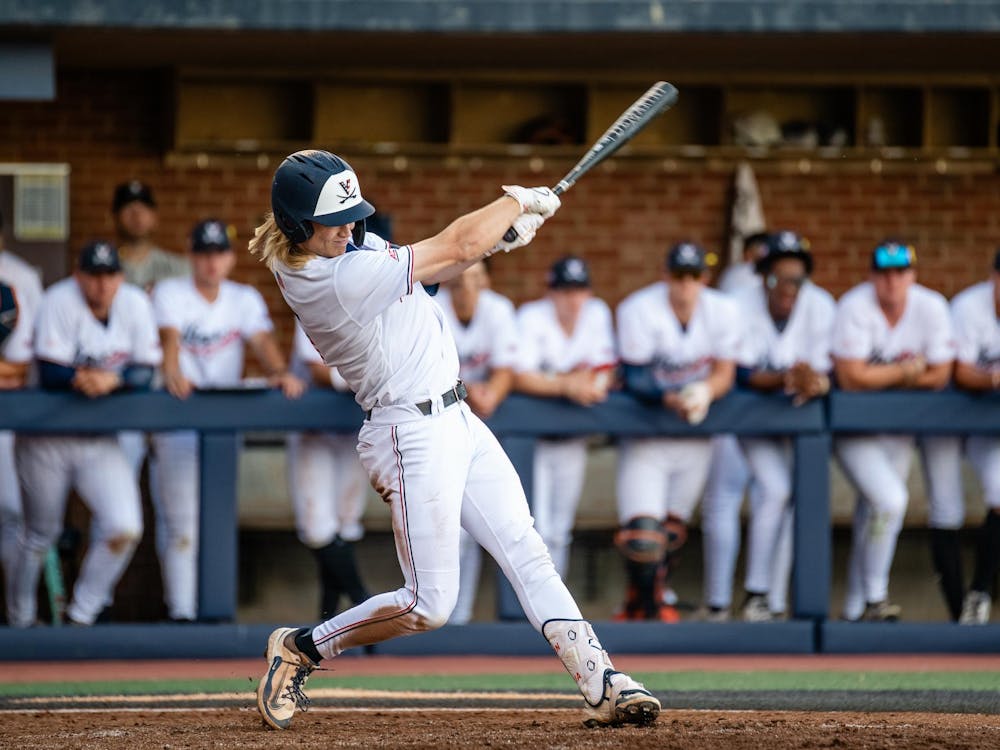Sometimes the road to greatness surpasses the accomplishment itself.Trophies and medals leave fans with only a name and no real description about the champion.
Take, for example, Virginia's senior javelin thrower Inge Jorgensen. On June 10, 2005 Jorgensen won a bronze medal at the NCAA Track and Field Championships, a notable feat it in its own right. Jorgensen's story, however, did not end there. In fact, it was only the beginning.
Jorgensen is a champion in every definition of the word. She certainly has the hardware to prove it. She is a four-time ACC champion in the javelin.She has won several tournaments like the 49er and Duke Invitational and is a three-time All-American.
Jorgensen is also a champion in terms of her leadership and role model capabilities. Her teammate Billie Jo Grant, a freshman discus thrower, will remember Jorgensen as much more than just a javelin champion.
"What I remember most about Inge, is how many people she influenced at U.Va."Grant said. "Inge helped to make my transition to U.Va easy. She was a mentor and a great friend."
Track and Field coach Randy Bungard echoed Grant's sentiments.
"When she's out there, she's a leader by example," Bungard said. "She's throwing well and winning meets. She's really a very positive person. Those two things together plus just being out there to perform make her a good teammate."
Jorgensen is a champion on and off the field, but perhaps even more impressive was her victory over an athlete's greatest enemy: injury.After two years of dominance in the javelin, Jorgensen faced her toughest test when she suffered a tendon split in her quadriceps, severely limiting her power as a javelin thrower. The injury forced Jorgensen to red-shirt her junior season. The bad luck continued when shortly thereafter she had to have surgery on a ligament tear in her elbow.
Injuries are nothing new to great Virginia athletes. Point guard Majestic Mapp was a freshman phenom in Pete Gillen's basketball program until three knee surgeries ruined his hopes of ACC dominance and Gillen's job.Defensive end Chris Canty's injury last season against Syracuse put the Cavaliers at a disadvantage for the rest of the season. That is why Jorgensen's story is even more incredible.She didn't just come back; she came back better than ever. Look no further than the Georgia Tech Invitational. In only her first year back from injury, Jorgensen threw a career-best javelin 177 feet, 10 inches.Jorgensen engineered this spectacular comeback by never losing her sense of leadership, even on the sidelines.Her competitive spirit and determination overpowered any notion of self-pity or doubt that may have crept in during the long rehab process.
"It's more upsetting that I couldn't compete," Jorgensen said. "It was upsetting I couldn't compete nationally."
That frustration has been rewarded with even more success for Jorgensen. An eighth and now third place finish at the NCAA Track and Field Finals seems to be an appropriate ending for a bona fide champion.
"She has been a big part of our program for 6 years and it is appropriate that she finish her career at U.Va. with her highest finish ever." Bungard said."She will be missed as she moves on to the next chapter in her life."
She may be missed, but certainly not forgotten. Inge Jorgensen's six years at the University show the power of mental resiliency in sports. It is an attribute she has passed on to her teammates as well. Billie Jo Grant proved that on June 10, taking All-American honors and earning ninth place in the discus championships as only a freshman.
"Sometimes all it takes to reach the next level is believing in yourself."Grant said. "Faith was what got me to the national meet, and in the years to come this will only give me more confidence to succeed at a higher level."
Time will tell just what kind of story is in store for Grant, but if it is anything like her mentor, it will be greater than any trophy or medal could explain.






